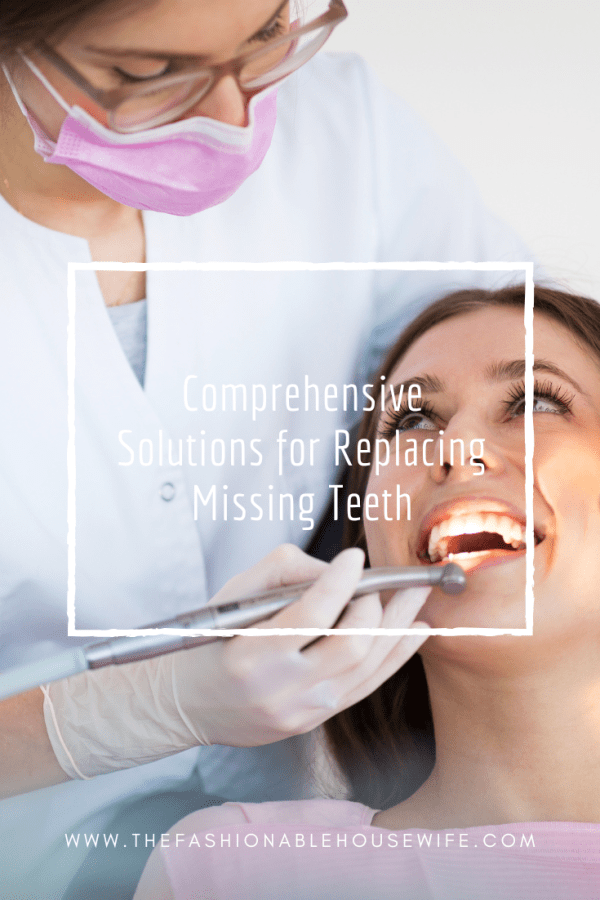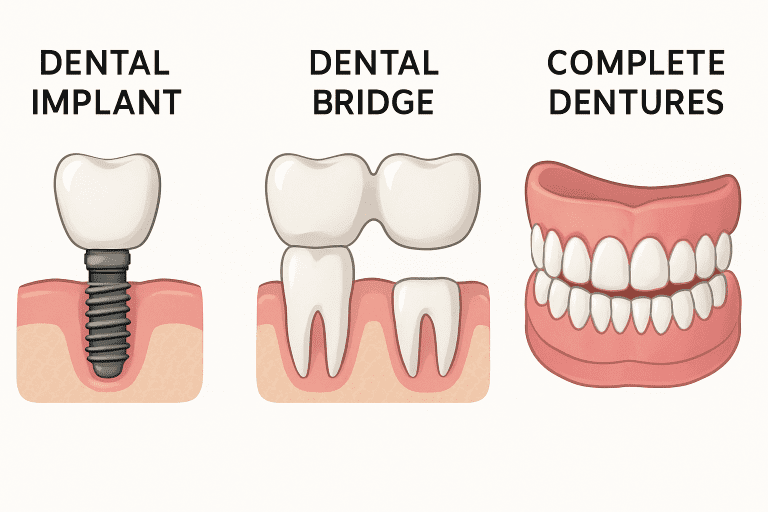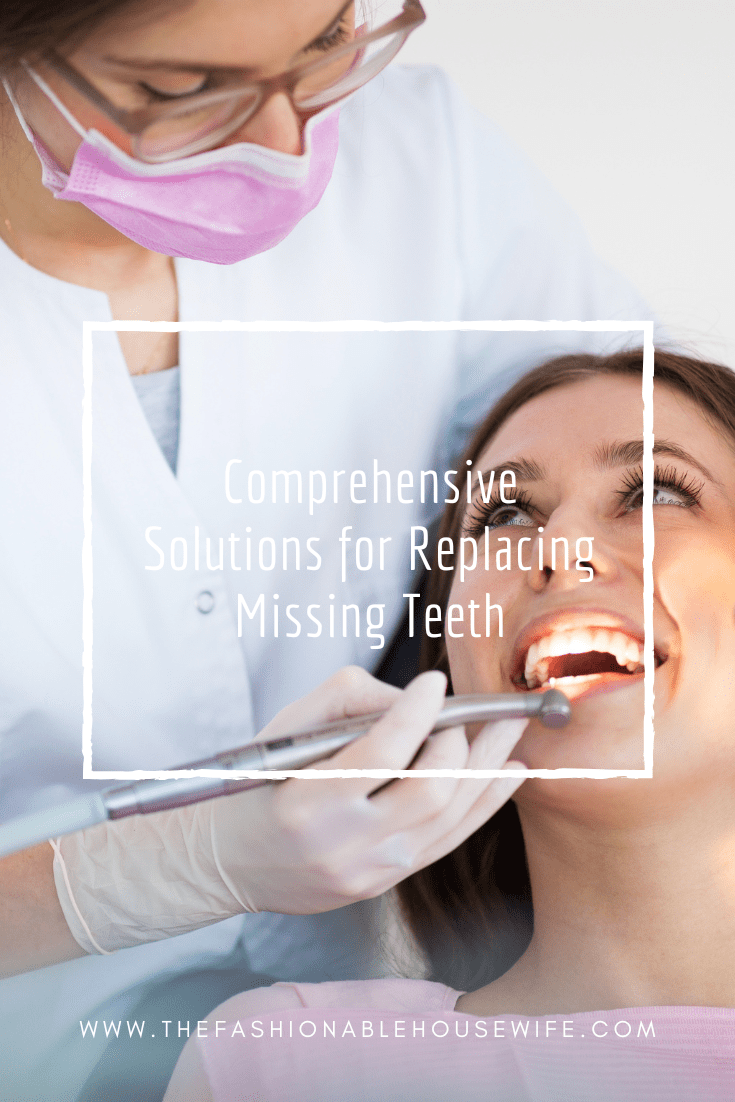Comprehensive Solutions for Replacing Missing Teeth

Table of Contents
- Dental Implants
- All-on-4 Implants
- Dental Bridges
- Partial and Complete Dentures
- Emerging Technologies in Tooth Replacement
- Choosing the Right Solution
- Final Thoughts
Tooth loss can change much more than the look of your smile—it can hamper your ability to chew comfortably, speak clearly, and feel confident in social or professional settings. Thanks to advances in modern dentistry, you no longer have to accept missing teeth as a permanent problem. A range of innovative methods ensures that everyone can find a tooth replacement that suits their needs, lifestyle, and budget. If you’re seeking a permanent and natural-looking result, full mouth dental implants Dallas, TX offers a comprehensive approach that restores your smile and oral function.
Understanding the various available solutions is the first step in regaining your quality of life. Whether you’re missing a single tooth or require a full-mouth restoration, a tailored treatment can restore your confidence in smiling and your comfort in eating your favorite foods. From dental implants to removable dentures, all options have benefits and potential drawbacks you’ll want to weigh carefully.
Dental Implants
Dental implants are widely recognized as the gold standard for replacing missing teeth. This method involves surgically placing a small titanium post into the jawbone, which then fuses with the bone to serve as a sturdy foundation for an artificial crown. This structure mimics the function of a natural tooth root, preventing bone loss over time and promoting overall oral health.
Pros and Cons of Dental Implants
- Pros: Exceptionally stable, long-lasting, and aesthetically pleasing; stimulates bone growth and prevents bone deterioration; does not compromise adjacent teeth.
- Cons: Involves surgery and a healing period; higher upfront cost than some alternatives; requires sufficient jawbone density for placement.
According to the Mayo Clinic, dental implants have an overall success rate of up to 98%, making them a reliable choice for most patients seeking a permanent solution.

All-on-4 Implants
For patients missing many or all of their teeth, all-on-4 dental implants offer an innovative solution. This technique places just four implants per arch—strategically angled for optimum stability—to support a full set of fixed replacement teeth. The All-on-4 approach is less invasive than traditional individual implants, often avoids bone grafting, and delivers immediate results.
This option has grown especially popular due to its blend of effectiveness, speed, and cost efficiency. As noted by AARP, patients commonly leave the office with a fully functional set of fixed teeth on the same day as their procedure, making All-on-4 a life-changing option for those seeking a swift and substantial transformation.
Dental Bridges
Dental bridges provide a non-surgical alternative for replacing one or several adjacent missing teeth. A bridge works by anchoring artificial teeth to the natural teeth or implants on either side of the gap. This treatment restores both chewing ability and natural appearance, but it requires the adjacent healthy teeth to be reshaped for crowns that support the bridge.
- Pros: Quick and minimally invasive procedure; restores aesthetics and function; usually more affordable than implants.
- Cons: Adjacent teeth must be filed down; does not prevent bone loss at the site of the missing tooth; bridges may need to be replaced over time.
Partial and Complete Dentures
Dentures are removable devices that substitute for missing teeth and surrounding tissue. Partial dentures are used when some natural teeth remain, connecting securely to those teeth for support. Complete dentures, on the other hand, are an option when all the teeth on the upper or lower jaw are missing.
- Pros: Non-surgical and highly cost-effective; can replace multiple teeth at once; immediate restoration of aesthetics and basic function.
- Cons: Bulkier than fixed options, which can affect comfort, taste, and speech; need to be removed and cleaned nightly; may cause gum irritation and must be relined or replaced over time.
Emerging Technologies in Tooth Replacement
Thanks to technological advances, dental care is evolving quickly. 3D printing, for example, now enables the creation of custom dental prosthetics with remarkable precision, resulting in a more comfortable and natural-feeling fit. New research into digital impressions and 3D tooth reconstruction, such as that highlighted in TeethDreamer: 3D Teeth Reconstruction from Five Intra-oral Photographs, promises to streamline and personalize tooth replacement further soon.
Choosing the Right Solution
Choosing the ideal method for replacing missing teeth depends on various factors, including the number and location of missing teeth, jawbone health, lifestyle, age, and budget. Consulting a professional is crucial—they can offer personalized advice based on your oral health status and desired outcomes, ensuring you receive the best results both functionally and aesthetically.
Final Thoughts
Missing teeth no longer have to hinder your wellbeing or confidence. Today’s dental solutions—from implants and All-on-4 systems to bridges and dentures—allow you to reclaim your smile’s full function and beauty. By staying informed of your options and proactively consulting with dental experts, you can select a treatment plan that supports a lifetime of healthy smiles.

